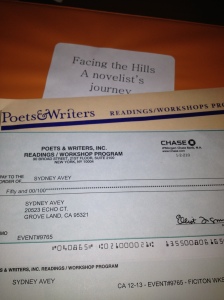Got the t-shirt, or in this case, my 2012 NaNoWriMo  winners certificate. I wasn’t as excited to collect this “goodie” as my first time around the NaNoWriMo block, in 2010. Nothing rivals first times.
winners certificate. I wasn’t as excited to collect this “goodie” as my first time around the NaNoWriMo block, in 2010. Nothing rivals first times.
If I picked feelings like daisies growing in a grassy field, I would pick these: satisfaction that I persevered and have a new story to continue to shape; relief that the exercise is over; and wonder over how much I have learned since my first experience writing 50,000 words in 30 days.
In The Forest for the Trees, Betsy Lerner quotes Michael Cunningham:
Fearlessness in the face of your own ineptitude is a useful tool.
I love that novel writing is such an exercise in courage. Writing builds character –the writer’s character as well as fictional characters. To persevere in the face of distraction (I dropped my blogs for a month), rejection (a friend dropped me for being unavailable) and demanding fictional characters who hijack your story and take you places you may not want to go, demonstrates you are willing to pay the high cost of a creative life.
It’s the difference between standing on a riverbank, wondering what life is like on the other side, and jumping into the water to experience the pull of the current, never mind what’s on the other side.
Congratulations to all those who put a toe in the river this year.









